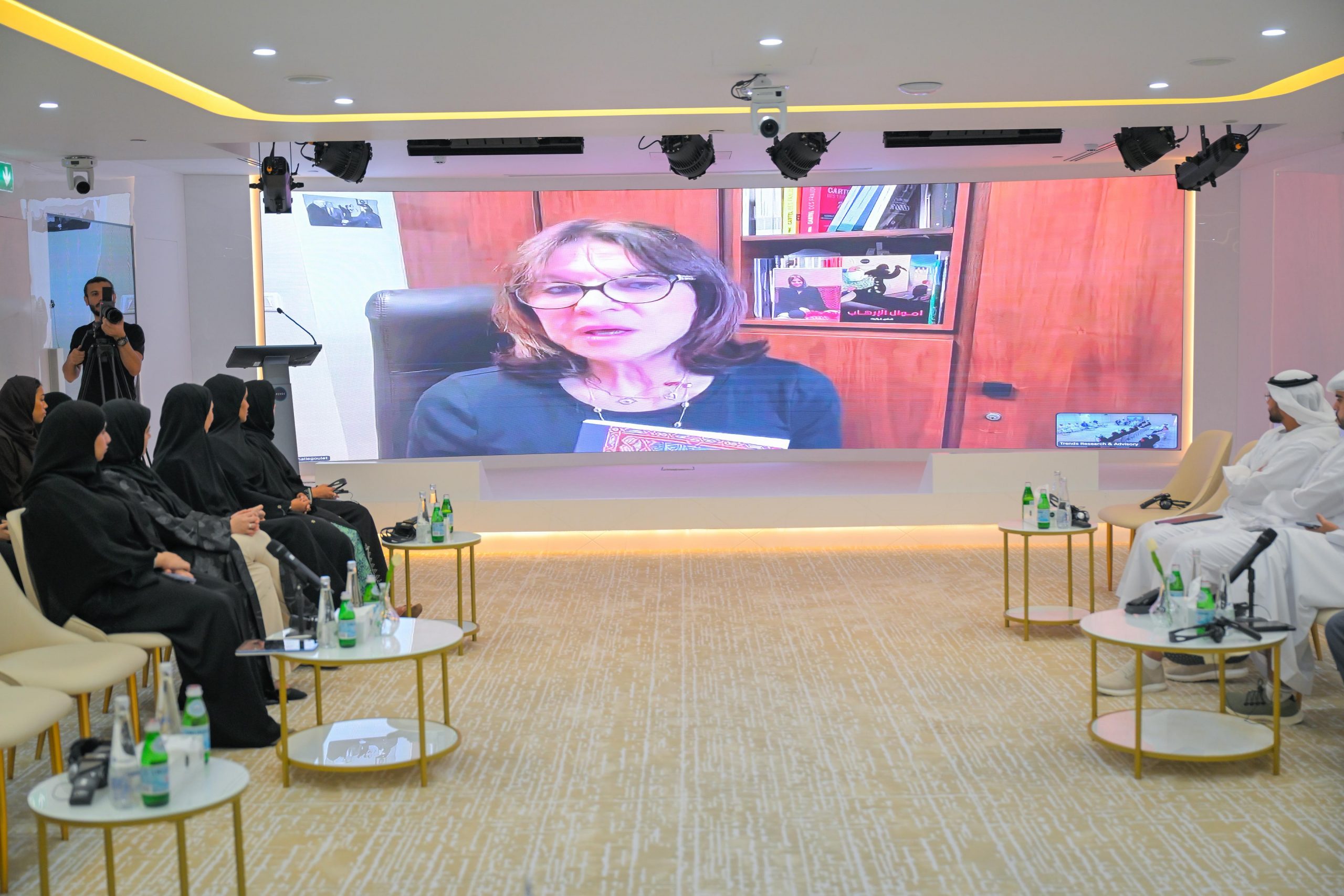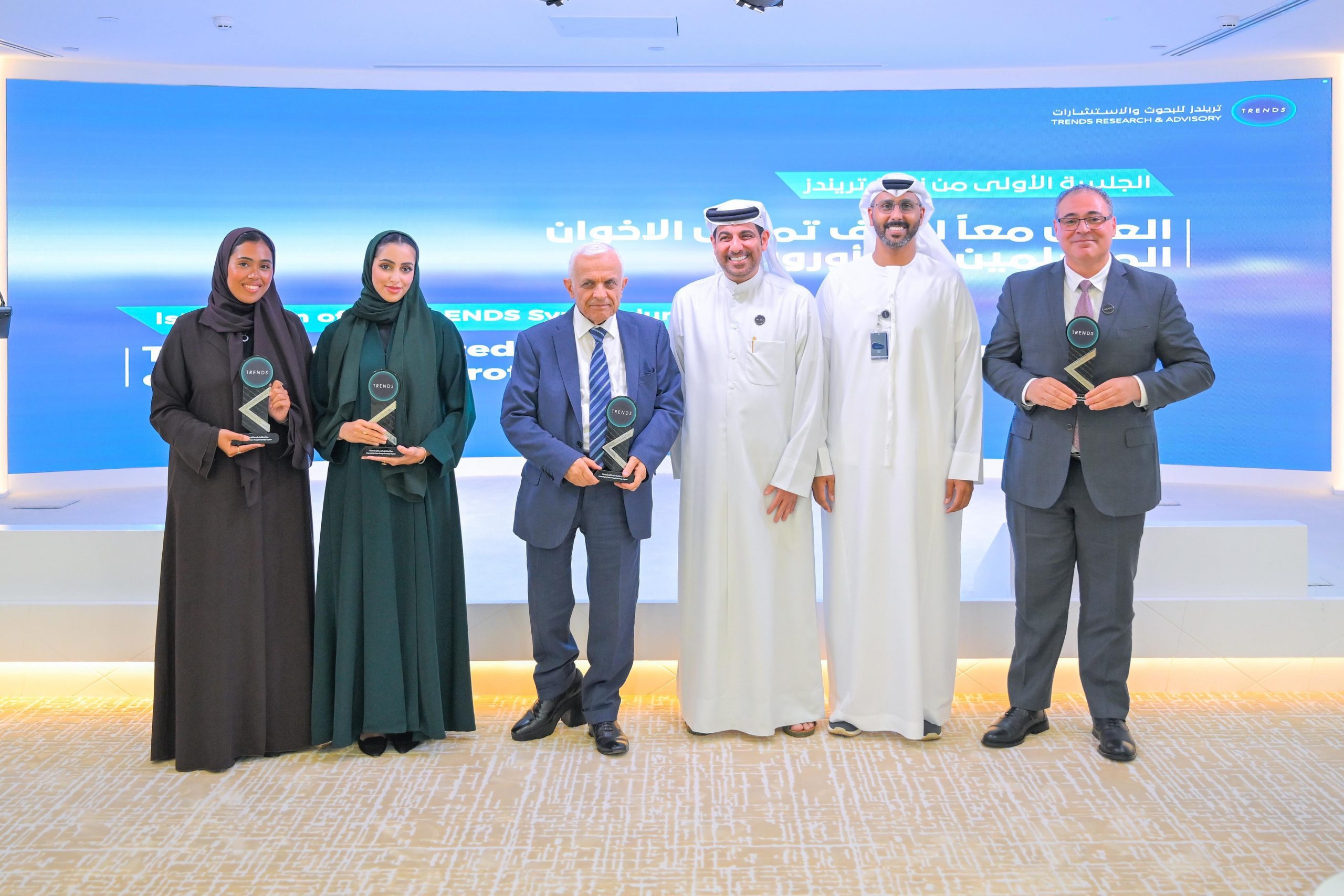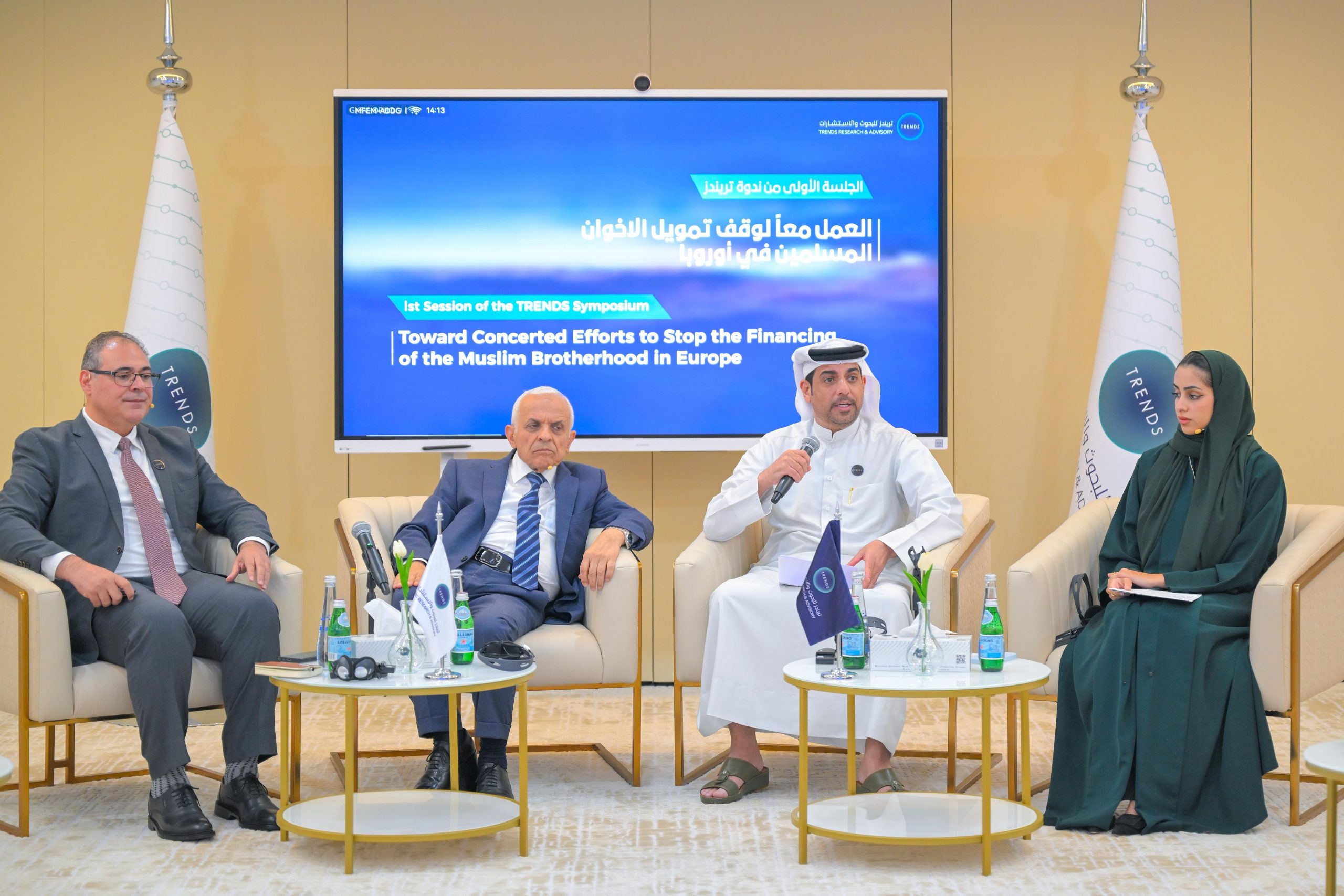-Experts and academics assert that cutting funding is key to safeguarding societies from extremism
TRENDS Research & Advisory organized a symposium – Toward Concerted Efforts to Stop the Financing of the Muslim Brotherhood in Europe – addressing one of the most pressing intellectual and security challenges facing modern societies: the financing of extremist groups, chief among them the Muslim Brotherhood.
Participants, including experts and academics, emphasized that stopping funding is the first step in protecting societies from ideological and organizational infiltration. They warned of the danger posed by the continuous financial support the group receives through transnational networks operating under religious, educational, and charitable facades.
Although the symposium was initially planned to be held entirely in-person at the TRENDS headquarters, regional developments necessitated its transformation into a hybrid format, combining on-site attendance with virtual participation. This event also served as a prelude to a major symposium that TRENDS will organize in Paris later this month.
Understanding Extremism’s Economic Structure
In his opening remarks, Dr. Muhammad Al-Ali, CEO of the TRENDS Research & Advisory, emphasized that “the symposium tackles one of the most serious challenges of our time, that is the financing of extremist groups.” He noted that understanding the economic structure of the Muslim Brotherhood is key to analyzing the mechanisms behind its influence and expansion.
Dr. Al-Ali explained that TRENDS devoted special research attention to this issue, citing the fourth study in its Brotherhood Encyclopedia, The Economic Construction of the Muslim Brotherhood: Financial, Business and Finance Networks. The study highlights how the group established an intricate web of financial networks and how these resources have been crucial in reinforcing its ideology.
“Through this symposium, we aim to analyze the current state of extremist group financing, identify sources of risk and prospects for counteraction, and send a clear message that all forms of financial support for these groups, especially the Muslim Brotherhood, must be stopped,” he added.

Distinguished Participants
Several prominent figures participated in the symposium, including Professor Radwan El Sayed, Dean of the Graduate Studies and Scientific Research Collage at Mohamed Bin University Zayed for Humanities; Senator Nathalie Goulet, Member of the French Senate representing the Orne District; and Dr. Wael Saleh, Advisor for Political Islam and Extremism Studies at the TRENDS. The event was introduced by researcher Moza Al-Muhairi and moderated by researcher Najla Al-Midfa.
Religion is for Tranquility and Peace, Not Conflict
Prof. Radwan El Sayed offered a critical reading of the book Muslim Brotherhood: Side Glances, published by TRENDS Research & Advisory, focusing on the concept of tranquility in religion as a criterion for assessing the authenticity of religious devotion. He emphasized that religion, in its essence, was revealed to promote psychological and social tranquility and peace. However, the Brotherhood has transformed it into a tool for political and ideological conflict. He warned that funding such groups only helps support subversive activities carried out under the guise of religion.
Soft Infiltration of French Society
Senator Nathalie Goulet focused on her parliamentary experience investigating the sources of funding for political Islam in France, particularly the Muslim Brotherhood. She explained that a portion of this funding is directed to academic and charitable institutions, which are a facade for the group’s soft infiltration into French society. Goulet voiced concern over the financing of specific Islamic research and studies, warning that such support may be exploited to promote Islamist agendas and whitewash their image. She called for transparent investigations and stricter controls on suspicious financial flows.

Parallel Economy and Ideological Indoctrination
In a detailed analysis, Dr. Wael Saleh explained that the Muslim Brotherhood possesses intricate financial and organizational networks all over Europe, maintaining control over numerous mosques and centers under religious cover. This structure enables the group to establish a parallel economy within European societies.
He explained that the Brotherhood’s funding sources range from individual donations and corporate contributions to support from non-governmental organizations, as well as, in some cases, both legal and illicit channels. He emphasized that this funding does not merely sustain acts of violence but also fuels ideological indoctrination, propaganda campaigns, and mobilization efforts.
Dr. Saleh emphasized the need for a comprehensive strategy that balances firm security measures with analytical insight to counter ideological financing effectively. He underscored that such efforts must be carefully implemented to avoid infringing on public freedoms.
Commendation for TRENDS’ Efforts
At the conclusion, symposium participants commended TRENDS’ research efforts and its pivotal role in exposing the financial and ideological structure of the Muslim Brotherhood. They emphasized that continued focus on such sensitive issues contributes to equipping decision-makers with the insights needed to craft effective policies to combat extremism and strengthen societal security.



